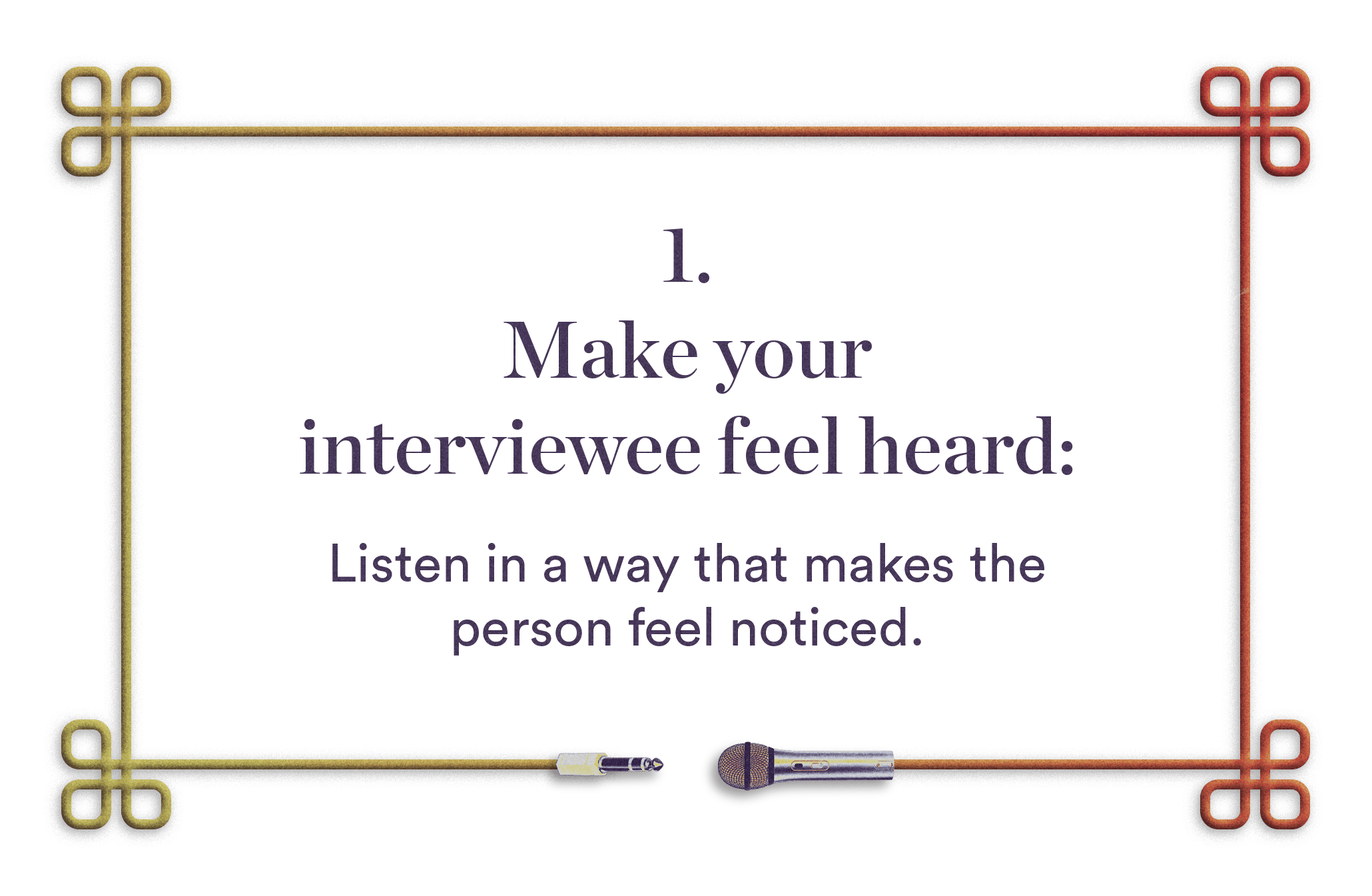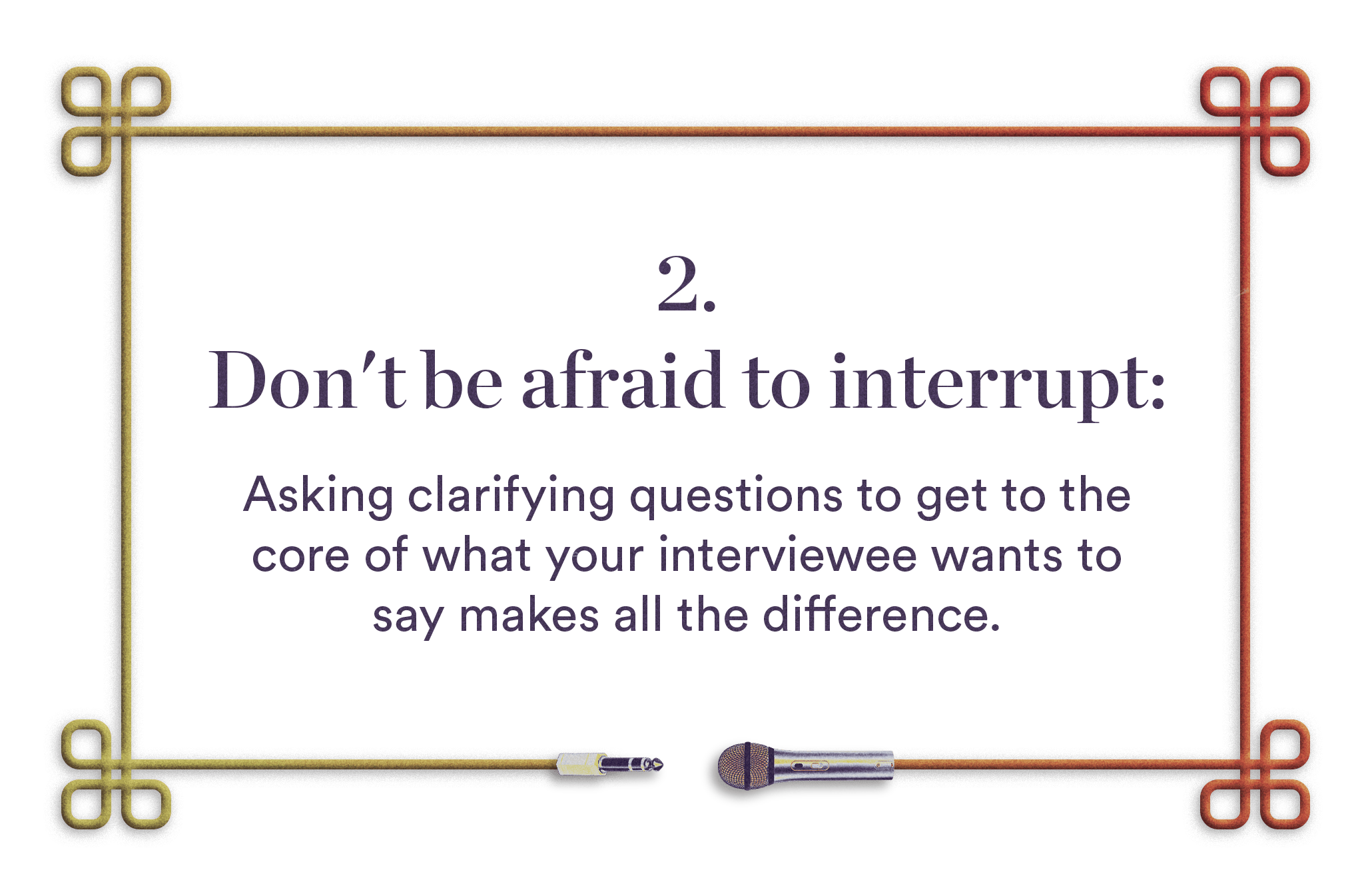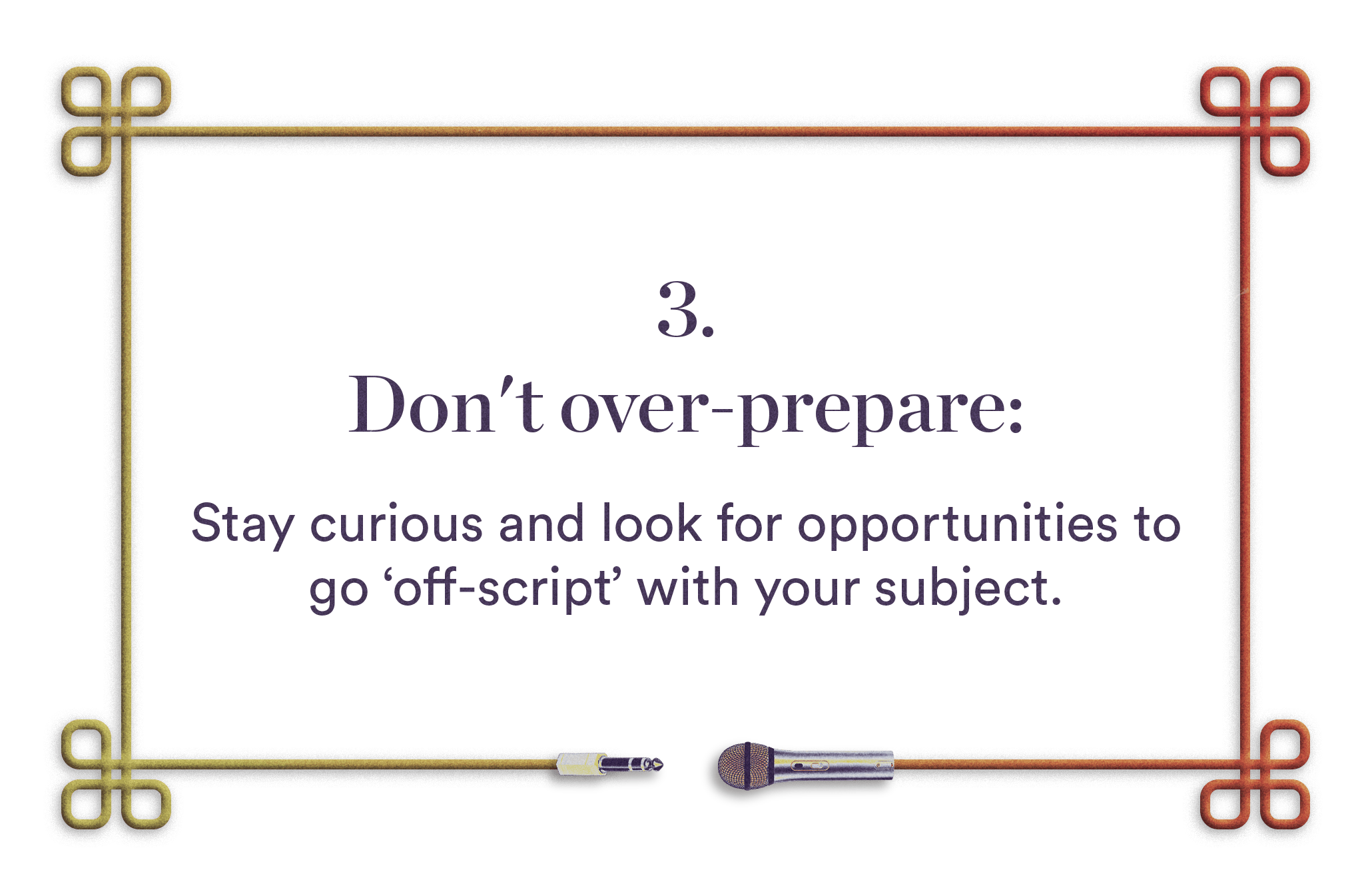Being a good interviewer is an essential part of gathering feedback from users, learners, and partners. When done correctly, asking questions and listening helps build empathy with your audience while gathering valuable intelligence that can power your organization forward.
How to be a good interviewer — preparation is key!
When you’re using interviews to gather information, make sure you understand what you’re hoping to learn more about. Understanding what you’d like to learn helps set up the rest of your interview.
A common way to prepare for interviews is to create a set of questions. Make sure your questions follow these basic principles:
- Avoid leading questions. Leading questions are the biggest enemy to a successful interview. You want to learn what the interviewee really thinks! Don’t set them up to tell you what you want to hear. For example instead of asking “You like learning with flashcards, don’t you?” ask, “What’s your favorite way to learn?”
- Use shorter questions. Shorter questions are easier to understand and allow room for interpretation. This helps to get the interviewee talking, which can lead you into unexpected territory and reveal valuable information you never considered.
- Avoid hypotheticals. Consider a question like, “If we offered a course about how to make balloon animals, would you take it?” People always want to present themselves in the best light possible, of course they’ll say they’d take your course! In reality there are so many factors that will impact whether or not they choose to participate.
If you’re going to hold the interview sessions virtually, prepare for any technological challenges you may encounter. In our digital world, these types of challenges can ruin an interview, but they’re usually easy to avoid if you plan ahead.
We thought you could use a cheat sheet for all of this
Download our quick reference to keep these tips top of mind during your next interview!
Download the list→How to be an effective interviewer — notes from the pros
Emulating the masters of your craft is a great recipe for success. While there’s no hall of fame for the world’s best interviewers, there are many people working across different industries that you can look to for pointers. Here are a couple of role models to learn from as you look to get the most out of your interview:

Make your interviewee feel heard
Oprah Winfrey holds the record for most-viewed television interview (her interview with Micheal Jackson) and she interviewed tens of thousands of people over the course of her career, including Tom Cruise, Barack Obama, and Beyonce. Winfrey realized that every issue or problem that was featured on her show, at its root, was due to someone not being noticed or heard. She reflected on her interviewing experience,
“After every interview, you know what they would say? ‘Was that okay? How was that? How did I do?’ In one form or another, somebody always said that [to me]….”
You may not be interviewing presidents or pop stars, but the principle still applies. Asking questions about the challenges facing your audience, and listening to their responses can provide valuable insights.

Don’t be afraid to interrupt
Malcolm Gladwell is the author of five New York Times bestsellers and the co-founder of the audio-content company Pushkin Industries. In Malcolm’s Masterclass he discusses how people tend to be afraid to interrupt. As an interviewer, one tactic Malcolm uses is to slow the interview with polite interruptions in an effort to get as much context and definition from his subject as possible. Asking clarifying questions is better than making assumptions about what your subject is saying.

Don’t over-prepare
Larry King was dubbed “The most remarkable talk show host on TV, ever” by TV Guide and “Master of the mic” by Time Magazine. To Larry, every interview was an exercise in curiosity. In a 2017 interview, Larry advocated for not having any agenda or preset list of questions. From Larry’s perspective, the strategy of having a preset list of questions and objectives is in direct conflict to curious interviewing. Larry of course was a trained professional who honed his interviewing skills over years of experience. If you’re not as “live in the moment” as Larry, stick with your list of prepared questions and know that you might have to be a little flexible to get the most out of your sessions.
Qualities of a good interviewer — during the interview
There are a couple of principles that can support additional conversation and get the interviewee talking about their experience, so you can listen and learn more.
Adopt an investigative mindset
At this point in the process, you’re prepared for the interview and ready to ask questions. It’s important to make sure you adopt a mindset to examine the information your interviewee is giving you. Consider reconciling what is known, against what is unknown while you’re interviewing. Focusing on uncovering the unknown and learning more about it can help lead your interview in a valuable direction.
Follow up for more detail
Sometimes all it takes is a small phrase to get to the detail you’re really searching for. It can be hard to think of a follow up prompt in the moment. Here are a few of our favorites:
- “Tell me more…”
- “Expand on…”
- “What did you mean by…”
- “Could you describe…”
Pick one of these that feels most organic to you, write it down, and reference it during your interview. (P.S. We made a downloadable checklist for how to be a better interviewer, if you’re interested.)
Take advice from a 3 year old
If those prompts don’t reveal the information you’re looking for, consider asking “Why?” multiple times. This method, popular with many 3 year olds, was developed at Toyota Motor Company and was instrumental in helping them develop their continuous improvement approach to manufacturing. While it might seem clumsy, asking “Why?” multiple times can lead the conversation toward a path of discovering the root cause of an issue.
Identify questions that don’t work
In the spirit of continuous improvement, make note of what questions confuse interviewees or perhaps even cause them to react negatively. These notes will become invaluable as you proceed to other interviews and as you become a more seasoned interviewer.
Leave some room
Once you’ve asked all the questions on your list, make time for the interviewee to cover any ground they think is important that perhaps you missed. While many interviewees might not offer this information up, try prompting them with one of these examples:
- Is there anything you want to add?
- Is there anything you want to discuss that we didn’t cover?
- What didn’t I ask that you want to talk about?
We’ve summarized this article into a downloadable checklist for you
Seriously, you'll want it the next time you interview someone.
Skip to the download now!→
